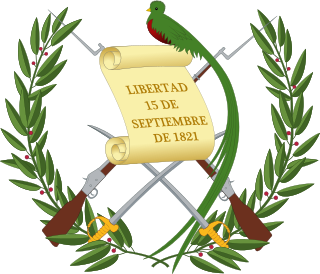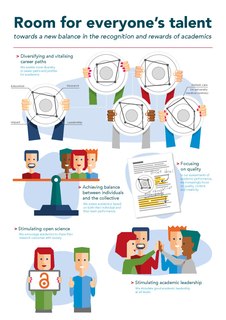 W
WConvivència is the public policy on social coexistence in Catalonia, Spain; government projects, departments and ordinances promote the principle broadly. Originally, convivència was presented as a policy to integrate immigrant populations and build social cohesion following the divisive Spanish Civil War and dictatorship. Today, convivència can encompass conflict mediation, policing, civic participation, language policy, public education, civility, public celebrations and the promotion of neighborhood-based initiatives. As the dominant paradigm of social coexistence, convivència is the frequent subject of political, scholarly, media and popular discourse. Unlike the cognate Castilian term, convivencia, which refers to an imagined Medieval Iberian past, the Catalan word and policy emerged in the late 1970s and refers to contemporary social life and recent history.
 W
WA state's foreign policy or external policy is its objectives and activities in relation to its interactions with other states, whether bilaterally or through multilateral platforms. The Encyclopedia Britannica notes that a government's foreign policy may be influenced by "domestic considerations, the policies or behaviour of other states, or plans to advance specific geopolitical designs."
 W
WFreeway removal is a public policy of urban planning policy to demolish freeways and create mixed-use urban areas, parks, residential, commercial, or other land uses. Such highway removal is often part of a policy to promote smart growth, transit-oriented development, walkable and bicycle-friendly cities. In some cases freeways are re-imagined as boulevards, rebuilt as tunneled freeways or relocated through less densely-developed areas.
 W
WGender democracy is a normative idea related to gender mainstreaming. Its aim is to achieve democratic conditions between men and women within society as a whole, as well as specifically within companies, bureaucracies, and other organizations. Among other things, this is realized by means of gender trainings that raise awareness of existing inequalities and develop methods to democratize relations between genders. The term gender democracy was first coined and developed by German sociologist Halina Bedkowski.
 W
WThe General State Administration is one of the Public Administrations of Spain. It is the only administration with powers throughout the national territory and it is controlled by the central government.
 W
WThe Ministry of Foreign Affairs of Guatemala is the executive office in charge of conducting the international relations of the country. This ministry can give the Guatemalan nationality, enforces the immigration laws of the country, preserves the national limits and boundaries, negotiates international treaties and agreements with other countries and preserves the copies of the ones signed by Guatemala. It is appointed by law to preserve the national interests overseas and to be part of the National Security System.
 W
WThe Secretariat of Social Work of the Wife of the President of the Republic of Guatemala is the organisation in charge of promoting and implementing social programs that benefit children, families and the community in general. SOSEP works in coordination with the First Lady of the Nation, and the current first lady is Patricia Marroquin, also follows the guidelines she has drawn. It was created on July 14, 1994, during the government of President Jorge Serrano Elías, through government Article 893-91.
 W
WThe Małopolska School of Public Administration of the Cracow University of Economics – a unit of the Cracow University of Economics – carries out research and applications, consulting, educational and publishing activities. In cooperation with domestic and foreign partners, it implements application projects aimed at enhancing the activities of local government and government administrations. Within the framework of MSAP UEK operates the Centre for Public Policies of the Cracow University of Economics.
 W
WMovie production incentives are tax benefits offered on a state-by-state basis throughout the United States to encourage in-state film production. These incentives came about in the 1990s in response to the flight of movie productions to other countries such as Canada. Since then, states have offered increasingly competitive incentives to lure productions away from other states. The structure, type, and size of the incentives vary from state to state. Many include tax credits and exemptions, and other incentive packages include cash grants, fee-free locations, or other perks. Proponents of these programs point to increased economic activity and job creation as justification for the credits. Others argue that the cost of the incentives outweighs the benefits and say that the money goes primarily to out-of-state talent rather than in-state cast and crew members.
 W
WPolicy Design for Democracy is a 1997 book by political scientists Anne Schneider and Helen Ingram that describes the process of public policy formation in democratic states, with particular emphasis on the United States.
 W
WPublic administration is the implementation of government policy and also an academic discipline that studies this implementation and prepares civil employees for working in the public service. As a "field of inquiry with a diverse scope" whose fundamental goal is to "advance management and policies so that government can function." Some of the various definitions which have been offered for the term are: "the management of public programs"; the "translation of politics into the reality that citizens see every day"; and "the study of government decision making, the analysis of the policies themselves, the various inputs that have produced them, and the inputs necessary to produce alternative policies." The word public administration is the combination of two words—public and administration. In every sphere of social, economic and political life there is administration which means that for the proper functioning of the organisation or institution it must be properly ruled or managed and from this concept emerges the idea of administration.
 W
WPublic consultation, public comment (US), or simply consultation, is a regulatory process by which the public's input on matters affecting them is sought. Its main goals are in improving the efficiency, transparency and public involvement in large-scale projects or laws and policies. It usually involves notification, consultation as well as participation. A frequently used tool for understanding different levels of community participation in consultation is known as Arnstein's ladder, although some academics contest that Arnstein's ladder is contextually specific and was not intended to be a universal tool. Ineffective consultations are considered to be cosmetic consultations that were done due to obligation or show and not true participatory decision making.
 W
WPublic consultation, public comment (US), or simply consultation, is a regulatory process by which the public's input on matters affecting them is sought. Its main goals are in improving the efficiency, transparency and public involvement in large-scale projects or laws and policies. It usually involves notification, consultation as well as participation. A frequently used tool for understanding different levels of community participation in consultation is known as Arnstein's ladder, although some academics contest that Arnstein's ladder is contextually specific and was not intended to be a universal tool. Ineffective consultations are considered to be cosmetic consultations that were done due to obligation or show and not true participatory decision making.
 W
WScience policy is concerned with the allocation of resources for the conduct of science towards the goal of best serving the public interest. Topics include the funding of science, the careers of scientists, and the translation of scientific discoveries into technological innovation to promote commercial product development, competitiveness, economic growth and economic development. Science policy focuses on knowledge production and role of knowledge networks, collaborations and the complex distributions of expertise, equipment and know-how. Understanding the processes and organizational context of generating novel and innovative science and engineering ideas is a core concern of science policy. Science policy topics include weapons development, health care and environmental monitoring.
 W
WTransaction Man: The Rise of the Deal and the Decline of the American Dream is a non-fiction book which chronicles the role of corporations in relation to the American economy and shifts in public policy by Nicholas Lemann, who is a veteran journalist and a The New Yorker staff writer.
 W
WThe Tripartite Consultation Convention, 1976, officially the Convention concerning tripartite consultations to promote the implementation of international labour standards is an International Labour Organization Convention, which governs the process for implementation of measures regarding ILO conferences. It requires tripartite consultation before ratification, implementing legislation or denouncement of conventions. As of June 2015, the convention had been ratified by 139 member states. The convention is also known as convention number 144 on the List of International Labour Organization Conventions.
 W
WThe Encyclopedia of World Problems and Human Potential is published by the Union of International Associations (UIA). It is available online since 2000, and was previously available as a CD-ROM and as a three-volume book. The online Encyclopedia is currently in a redevelopment phase.